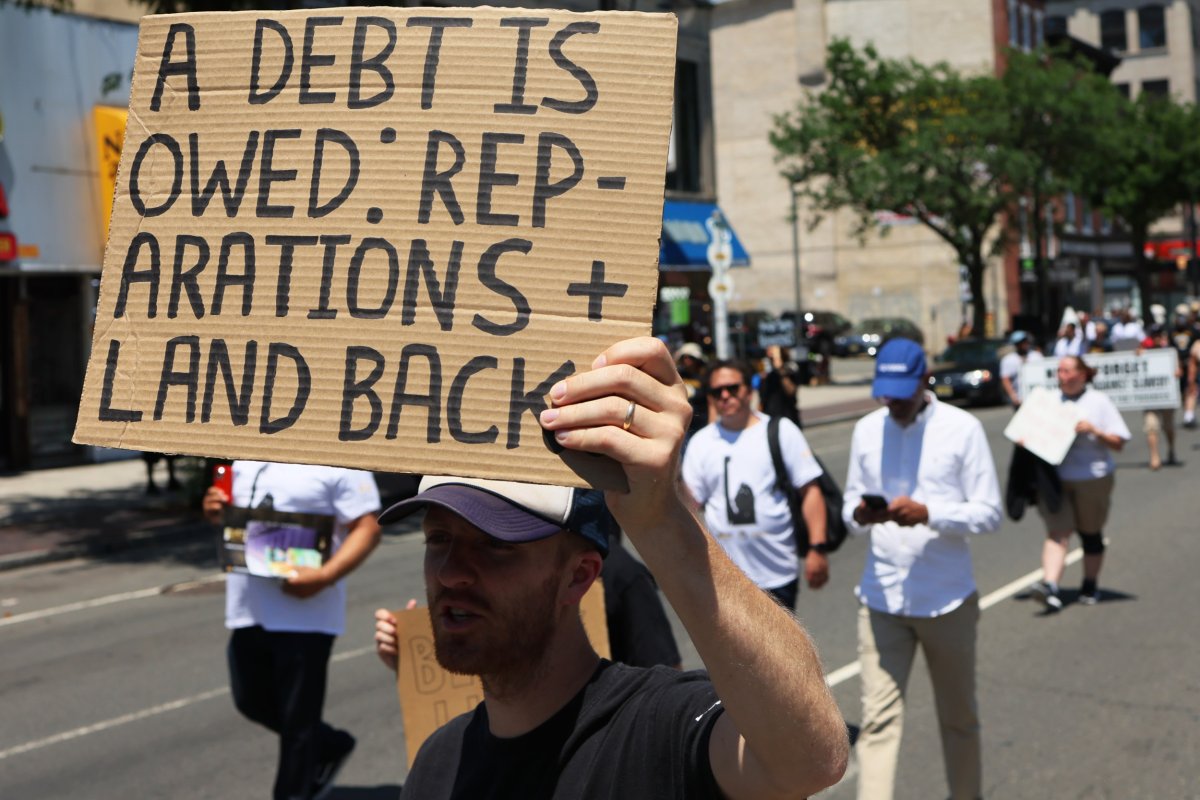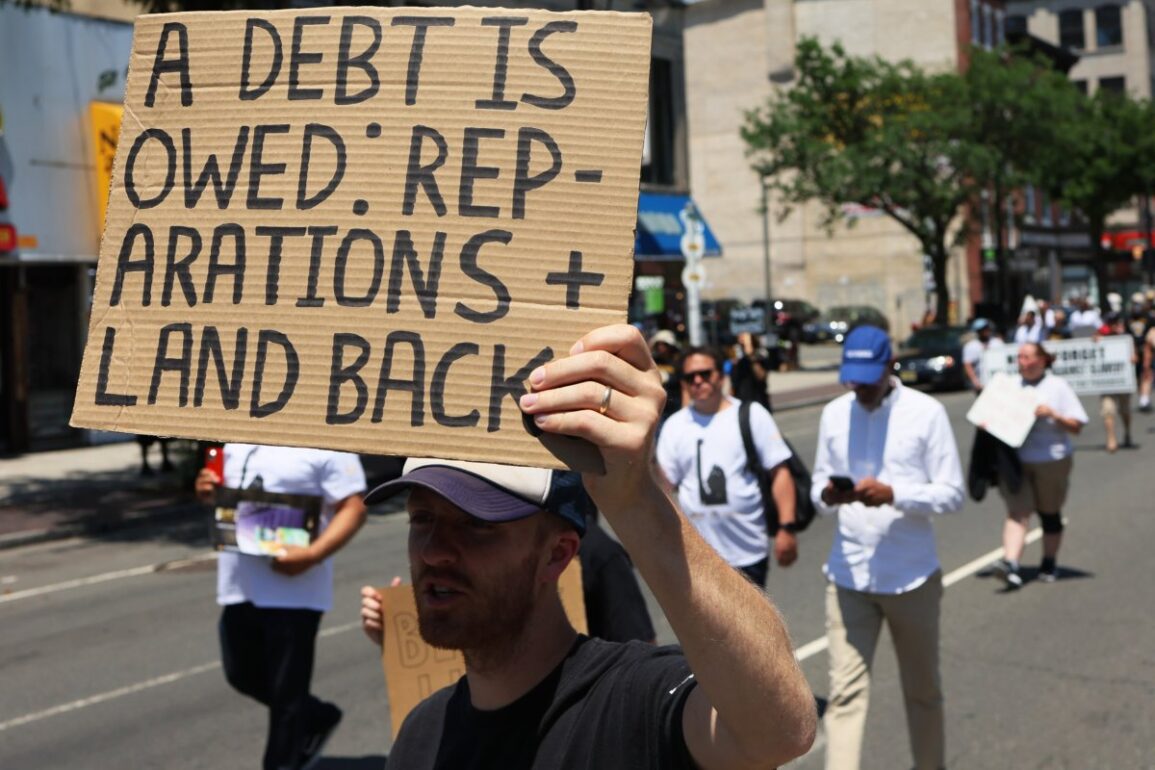The California Senate passed three reparations bills on Tuesday that aim to atone for the state’s legacy of slavery and discrimination against African Americans.
They include one that would create the California Freedmen Affairs Agency to help Black families research their lineage and confirm their eligibility for any future restitution passed by the state.
The other bills would create a fund for reparations programs and compensate Black families for property that the government unjustly seized from them using eminent domain. The proposals now head to the state Assembly.
The three bills are part of a package of more than a dozen proposals introduced by the California Legislative Black Caucus earlier this year, after California’s Reparations Task Force last year sent a report to lawmakers with recommendations after spending two years studying how the state could atone for its legacy of racism and discrimination against Black Americans.
State Sen. Steven Bradford, a Democrat who authored the bills and served on the task force, said California “bears great responsibility” for “grave injustices” against Black Californians.
The creation of the new agency “is the first step California can take in righting these wrongs,” he said.
“If you can inherit generational wealth, you can inherit generational debt,” Bradford said. “Reparations is a debt that’s owed to descendants of slavery. These are not a handout or charity by any measure. It is what was promised, it’s what is owed and what is 160 years overdue.”
Bradford has been contacted for further comment via a contact form on his website.

People march during a Juneteenth reparations rally in Newark, New Jersey, on June 17, 2022. The California Senate passed three reparations bills on Tuesday that aim to atone for slavery and past discrimination.
Michael M. Santiago/Getty Images
New York and Illinois have both created commissions tasked with considering reparations proposals, but neither has advanced as far as California in its efforts. The Chicago suburb of Evanston, Illinois, became the first city to provide reparations to some Black residents in 2021, to atone for past discriminatory housing policies.
On the federal level, a proposal to create a commission to study reparations has languished in Congress for more than three decades.
Some California lawmakers who oppose reparations have said that more is being promised than can be delivered because of the state’s multibillion-dollar budget deficit.
“It seems to me like they’re putting, number one, the cart before the horse,” said Republican Assembly member Bill Essayli, according to The Associated Press. “They’re setting up these agencies and frameworks to dispense reparations without actually passing any reparations.”
The passage of the bills on Tuesday comes after bills that would have given property tax and financial assistance to descendants of enslaved people were blocked by the Senate Appropriations Committee. Bradford said that was largely because of the state’s budget issues.
But the California Assembly on Thursday did vote to advance a bill that would issue an official apology for the state’s role in slavery and discrimination against Black Californians.
The Coalition for a Just and Equitable California, which advocates for reparations, said on social media ahead of Tuesday’s votes that the three bills “lay the groundwork for full Reparations, including the return by the state of California of stolen wealth and income, as well as the provision of new opportunities to build, thrive and prosper as a community of residents who descend from those brave American souls who overcame enslavement in the U.S.
“We’re closer to Reparations than we’ve ever been. And because of the hard work and commitment of countless individuals, families and organizations from all walks of life, we get closer every day.”
Uncommon Knowledge
Newsweek is committed to challenging conventional wisdom and finding connections in the search for common ground.
Newsweek is committed to challenging conventional wisdom and finding connections in the search for common ground.



